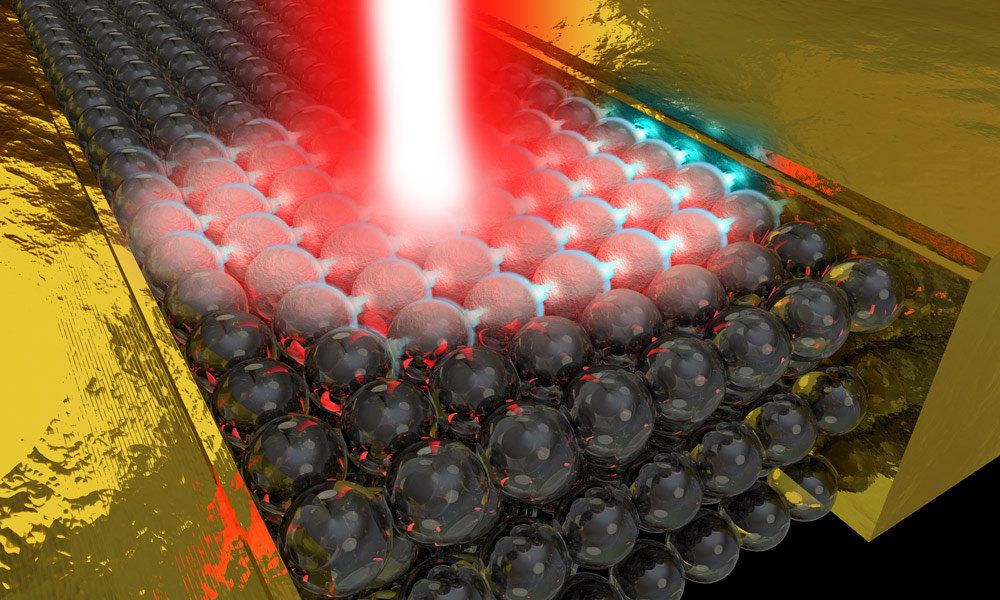Take a glass thread a thousand times thinner than a human hair. Use it as a wire between two metals. Hit it with a laser pulse that lasts a millionth of a billionth of a second.
Remarkable things happen.
The glass-like material is transformed ever so briefly into something akin to a metal. And the laser generates a burst of electrical current across this tiny electrical circuit. It does so far faster than any traditional way of producing electricity and in the absence of an applied voltage. Further, the direction and magnitude of the current can be controlled simply by varying the shape of the laser—by changing its phase.
Read more
